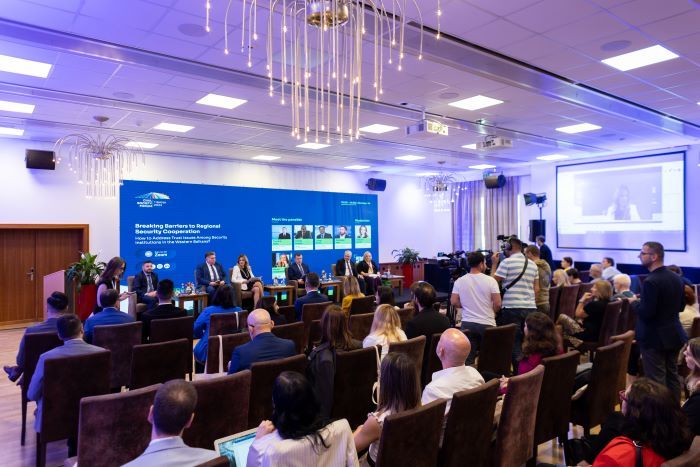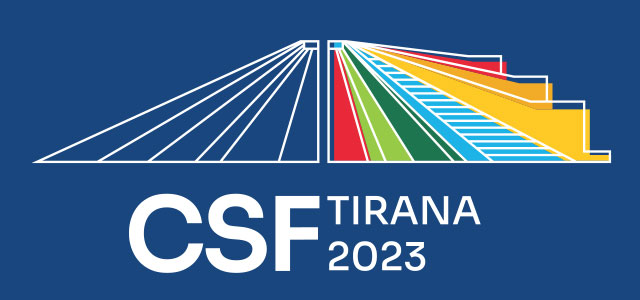| CSF

Albanian and Kosovo interior ministers highlight Kosovo’s security threats, as experts call for reconciliation and deeper cooperation on cyber security and migration among the Balkan nations.
During a panel discussion, organized by the Kosovar Center for Security Center as part of the Civil Society Forum held in Tirana this year, participants examined the current state of regional security cooperation and outlined strategies for enhancing cooperation.

Moderated by security expert and Atlantic Council fellow, Valbona Zeneli, the panel, which included Albania’s Minister of Interior, Taulant Balla, Kosovo’s Minister of Internal Affairs, Xhelal Sveçla, and Bosnia and Herzegovina’s Deputy Minister of Foreign Affairs, Josip Brkic, tackled geopolitical shifts since the Ukrainian invasion and how they have affected the EU prospects of the six Western Balkan countries.
“The Russian invasion has emphasized the geopolitical importance of Western Balkans, even among the skeptics,” Minister Balla said, before condemning the attack of September 24 in northern Kosovo during which a police officer was killed. “[It was an act of] aggression against the stability, the integrity, the independence and law and order, of course, but not only, it was also a grave threat to the security and stability of our whole region with direct consequences for our common Europe.”
Addressing the panel’s main topic, Kosovo’s Minister Sveçla highlighted that in the sector of security, Kosovo has 26 agreements with Albania, 14 with North Macedonia, and full cooperation with Montenegro with which they had recently closed six illegal routes.
“With Serbia, unfortunately, I have nothing to present…because in addition to not being ready for such processes, it continues to have territorial aims toward our republic. This positioning of Serbia is dangerous, not only for Kosovo but also for peace and stability in the region and beyond,” Sveçla said.
The panelists also discussed the recommendation papers prepared after several consultations among stakeholders at the Kosovar Center for Security Studies.
One of the contributors to the paper, security expert and independent consultant Sonja Stojanovic Gajic, pointed out how the paper emphasized the need for the rule of law, and tackling organized corruption and corrosive capital. “There is no single market, or common market in the region without the security and justice area for the market,” Gajic Stojanovic said that the region lacks such security that would enable the Common Regional Market within the Berlin Process framework.
Ramadan Ilazi, Head of Research, Kosovar Centre for Security Studies, discussed the main civil society recommendations and noted that “Lack of reconciliation and bilateral dispute, especially between Kosovo and Serbia continue to be the single most important challenge for greater regional security cooperation and integration, and the EU should establish a facility to support reconciliation.” Ilazi said that one area of relevance for security cooperation in the region is cybersecurity and therefore, governments of Western Balkan countries should become members of the European Union Agency for Cyber Security as soon as possible.
Read the full recommendations here - https://wb-csf.eu/publications-csf/key-recommendations-of-the-thematic-working-group-on-security-and-geopolitics


